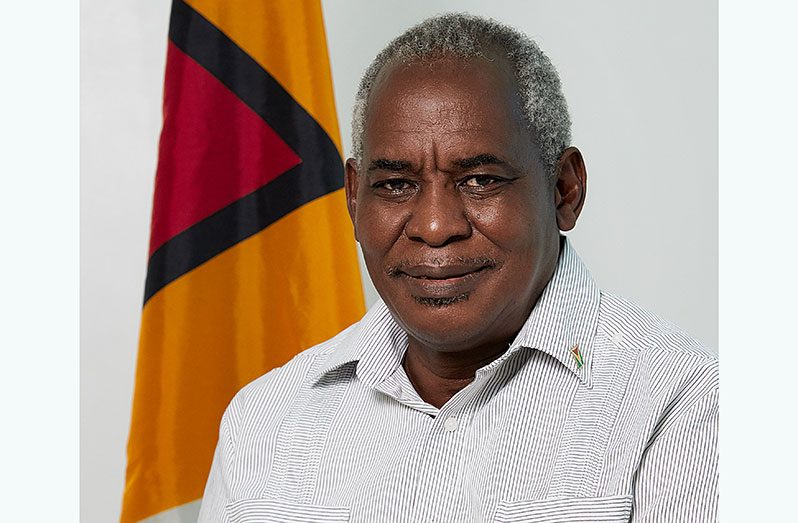–language barrier, COVID-19 pandemic hampering investigations
A TOTAL of 42 females were trafficked for sexual exploitation during the first five months of 2021, according to Sergeant Ranatha McBean of the Trafficking in Persons (TIP) Unit at the Guyana Police Force (GPF).
Sergeant McBean on Friday gave an overview of human trafficking here while delivering her presentation during a TIP webinar hosted by the Supreme Court of Judicature and Judicial Education Institute- Guyana (JEI.) The event coincided with World Day Against Trafficking in Persons 2021, which was held under the theme, “Victims’ Voices Lead The Way”.

Minister of Home Affairs, Robeson Benn; Acting Chancellor of the Judiciary, Justice Yonette Cummings-Edwards; Acting Chief Justice, Roxane George; and Chief Magistrate Ann McLennan, other judges, magistrates and other legal officers of the court were among those who attended the virtual seminar.
According to McBean, between January and May this year, the Force’s TIP Unit dealt with 14 reported cases involving 49 victims, which included three males. Seven of the eight victims who are under the age of 18, are Venezuelan nationals, McBean’s data revealed.
A total of 13 suspects were held by the police, resulting in 11 charges being laid. Of those charged, one conviction has been recorded thus far. Some of the cases involved sexual or labour exploitation.
One of the cases cited by McBean was the case of the State v Tito Brown, who is accused of trafficking two female Jamaican nationals, and withholding their passports. He was charged in May and was remanded to prison.

According to McBean, the most important aspect of dealing with TIP in Guyana is preventing the crime from occurring in the first instance. This, she pointed out, might be difficult, although different strategies are being implemented. TIP is the third most lucrative business in the world, she said.
She later explained to the attendees that the limited educational background of victims are among the challenges officers of the Unit often encounter. “Because of Guyana’s vast geographical location, access to proper education for children of the indigenous communities is sometimes difficult, hence it is difficult for victims from these locations to provide information to investigators,” the police officer said.
As it relates to victims’ willingness to cooperate with investigators, McBean noted that they are “schooled” by their traffickers following threats. In these circumstances, it is hard to obtain a legitimate statement from them.
“Just like how we are planning on better ways to improve, or to have more success in operation, traffickers are also planning,” McBean said, before explaining that victims, when interviewed, come up with a concocted story that they were being cared for by their boyfriends, girlfriends, or family members.
“It is really hard for us when it comes to victims participating in the interview process,” McBean said.
As it relates to the proper documentation and identification documents for victims, McBean said that most victims from Venezuela, or the indigenous communities, are usually not registered when entering Guyana, or after birth. There is also the absence of an identification, which makes it difficult to ascertain their age.
She further explained that another blindspot for the police when investigating TIP cases is the language barrier, since the Indigenous People of Guyana speak different dialects that are not being taught in the educational system. There is also a difficulty communicating with the Spanish-speaking victims.
UNIQUE CHALLENGE
McBean also stated that the COVID-19 pandemic is posing a unique challenge for TIP investigations.
“The coronavirus pandemic causes bar owners to adopt other methods of perpetrating this crime, which makes it harder for law enforcement officers to detect, and result in fewer surprise inspections being done,” she added.
Against this backdrop, the officer said that some methods used by traffickers during the pandemic are advertising, via social media, private locations for parties, escort services, and victims being delivered to the homes of clients.
“It’s the duty of law enforcement officers and other relevant authorities to stand committed in this fight to combat this scourge, since there is evidence of this crime occurring in Guyana. With this, we as law enforcement officers are tasked to bring justice to all victims of this crime,” she said.
With all the measures implemented by the Government of Guyana, through the Ministerial Task Force in a bid to combat TIP in Guyana, this inhumane act is still present in our society and many countries around the world. However, McBean is hopeful that with the determination and commitment of local stakeholders, TIP in Guyana will one day be eliminated.
Minister Benn, during his feature address, highlighted that Guyana was recognised by the United States Government for fully meeting the minimum standards for the elimination of TIP. As a result, Guyana has remained on Tier 1 of the TIP index.
Guyana has also been recognised for its completion of a draft amendment of the Combating Trafficking of Persons Act, increased identification and investigation of trafficking-related matters, the launch of the first-ever bilingual anti-trafficking hotline, and the opening of trafficking shelters outside of the capital area.
Due to economic and political crisis, large numbers of migrants from Venezuela, Cuba, and Haiti continue to cross over the border into Guyana, seeking greener pastures, which has caused a large increase in the number of trafficking victims.
Minister Benn said that as the influx of migrants continues to rise, more work needs to be done to improve the TIP response, when it comes to the societal and criminal risks involved.
He explained that one of the problems with TIP is that it is connected with other criminal activities, such as the drug trade, money laundering, smuggling of gold and other items out of the country, illegal trading of firearms and other criminal activities.
The minister noted that the government’s 2021-2023 action plan, which seeks to eliminate trafficking in persons, is being developed in partnership with key stakeholders.
Chief Magistrate Ann McLennan gave an overview of the Combatting Trafficking in Persons Act 2005, including the guidelines for sentencing and related criminal offences.
The Act at reference covers the unlawful withholding of a person’s identification card, and transporting and harbouring a person for the purpose of trafficking. The senior magistrate made reference to Chapter 3, which states that under a summary conviction, a person can be sentenced to three to four years’ imprisonment, subject to forfeiture of property, and can also be ordered to pay full restitution to the victim.
However, if convicted on an indictable charge which requires a High Court trial, the person who’s been charged can be sentenced to no less than five years’ imprisonment, or to life imprisonment along with forfeiture of property, and restitution to the victim.
In the case involving a trafficked person who is under the age of 18, five years may be added to the sentence. Additionally, if the convicted person commits a sexual assault against a trafficked person, five years may be added to the sentence.
In 2019, the Chief Magistrate had sentenced a businesswoman to 15 years’ imprisonment for trafficking two Venezuelan women for the purpose of sexual exploitation. Her sentencing was handed down in accordance with the TIP Act.




.png)









